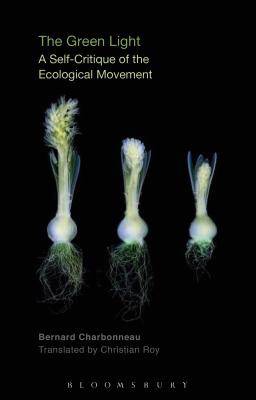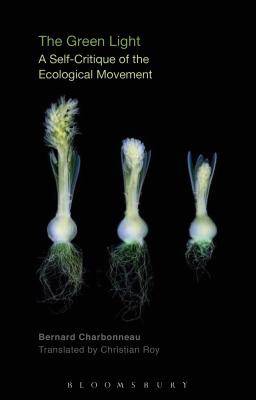
Bedankt voor het vertrouwen het afgelopen jaar! Om jou te bedanken bieden we GRATIS verzending (in België) aan op alles gedurende de hele maand januari.
- Afhalen na 1 uur in een winkel met voorraad
- In januari gratis thuislevering in België
- Ruim aanbod met 7 miljoen producten
Bedankt voor het vertrouwen het afgelopen jaar! Om jou te bedanken bieden we GRATIS verzending (in België) aan op alles gedurende de hele maand januari.
- Afhalen na 1 uur in een winkel met voorraad
- In januari gratis thuislevering in België
- Ruim aanbod met 7 miljoen producten
Zoeken
€ 228,95
+ 457 punten
Omschrijving
The Green Light ('Le Feu Vert') offers an original and profound exploration of the roots of environmental philosophy and the Anthropocene. Bernard Charbonneau situates the wellspring of the ecological movement in the dialectics of Nature and Freedom, and their needful but uneasy joining against the totalizing system of technological society that threatens them both. Using this paradoxical tension as a yardstick, he probes the ways in which concepts of Nature have developed as industrialization became second nature and jeopardized the original, taken for granted until its advent. This allows Charbonneau to explain how movements and policies claiming to deal with this issue have gone wrong. A spirited critique of how the environmental movement has taken shape in relation to philosophy, politics, theology and contemporary culture, this book written in 1980 is representative of an oft-overlooked strand of French environmentalist thought, as a look back on its first decade in the public eye by a man who had originated political ecology half a century earlier.
Charbonneau can be said to have prepared the way for many current concerns within environmental thought: the tension between liberalism and ecologism in green political theory; the wider question of the compatibility of ecological imperatives with supposedly foundational freedoms under capitalism; the discussions over how to balance existing democratic structures with environmental goals; the tensions between radical and reformist strategies within green movements; the controversy over the core values of ecological politics in a world transformed by climate change and peak everything; and the proper attitude of environmental movements to institutional science. This ground-breaking work should be front and centre of the debates that he anticipated, while giving a timely perspective on the interconnected questions of nature and human freedom.
This first English translation of a work by Bernard Charbonneau provides not only a vivid account of environmental philosophy, but an introduction to this important author's thought.
Charbonneau can be said to have prepared the way for many current concerns within environmental thought: the tension between liberalism and ecologism in green political theory; the wider question of the compatibility of ecological imperatives with supposedly foundational freedoms under capitalism; the discussions over how to balance existing democratic structures with environmental goals; the tensions between radical and reformist strategies within green movements; the controversy over the core values of ecological politics in a world transformed by climate change and peak everything; and the proper attitude of environmental movements to institutional science. This ground-breaking work should be front and centre of the debates that he anticipated, while giving a timely perspective on the interconnected questions of nature and human freedom.
This first English translation of a work by Bernard Charbonneau provides not only a vivid account of environmental philosophy, but an introduction to this important author's thought.
Specificaties
Betrokkenen
- Auteur(s):
- Vertaler(s):
- Uitgeverij:
Inhoud
- Aantal bladzijden:
- 248
- Taal:
- Engels
Eigenschappen
- Productcode (EAN):
- 9781350027084
- Verschijningsdatum:
- 14/06/2018
- Uitvoering:
- Hardcover
- Formaat:
- Genaaid
- Afmetingen:
- 140 mm x 216 mm
- Gewicht:
- 435 g

Alleen bij Standaard Boekhandel
+ 457 punten op je klantenkaart van Standaard Boekhandel
Beoordelingen
We publiceren alleen reviews die voldoen aan de voorwaarden voor reviews. Bekijk onze voorwaarden voor reviews.









